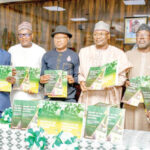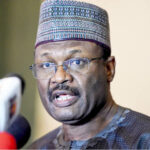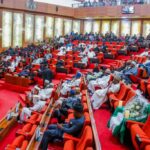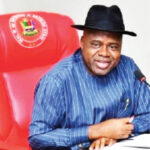By Prof Kathleen Okafor
The conduct of elections in any country is a crucial exercise because elections, to a large extent, allow the citizens to choose representatives who will govern them. In specific terms, elections determine the national well-being, security, international relations, trade, human rights, macro-economic stability, appointments to key government institutions, contracts, etc.
After the 2011 elections, there had been agitations for the electoral laws to be improved upon to accommodate and legitimise the use of technology to authenticate the electoral process. This alone was hammered as the key to credible elections. The conduct of the 2015 General elections by INEC had witnessed the introduction of the card reader as a way of ensuring that only persons who registered and were issued authentic voter’s cards voted.
- Aisha Buhari asks APC not to use free forms to relegate women
- Women, meritocracy and the political paradigm shift
Newspapers and political groups were agog at the revision of the Electoral Act. which All believed will usher in political & economic Eldorado. The common man as usual had no expectations but hoped that the changes would weave in women’s inclusivity, security, involvement of the disabled, structuring in INEC, INEC’s powers and regulations, and procedures for the conduct of elections to achieve better egalitarianism, political party regeneration, etc.
The president finally signed the Electoral Amendment Bill into law on Thursday, 24th of February, 2022, thereby giving legislative backing to a new process and which amended the extant Electoral Act as well as corrected some of the deficiencies noticed during the 2015 and 2019 general elections. Some salient provisions of the Electoral Act 2022 include the following:
1. Section 3(3) provides for the early release of election funds to INEC. This will strengthen the financial independence of the Independent National Electoral Commission (INEC) by ensuring that all funding required for a general election is released not later than one year before the general elections.
2. Section 8(5) provides for the political neutrality of INEC personnel. This means that a person who is a member of a political party, misrepresents himself by not disclosing the membership, affiliation, or connection to any political party to secure an appointment with INEC in any capacity commits an offence and is liable on conviction, to a fine of N5,000,000 or imprisonment for a term not exceeding two years or both.
3. Section 29(1) provides for early conduct of party primaries and submission of a list of candidates. Every political party shall, not later than 180 days (-6months) before election day, submit the list of its candidates, who must have emerged from valid primaries conducted by the political party to INEC.
4. Section 47 provides for legalizing the electronic accreditation of voters. This can be done through the use of smart card readers or any technological device as may be determined by INEC.
5. Section 50 provides for Electronic Transmission of Results. This will allow INEC to determine if election results are transmitted electronically or manually. This provision adopts the open secret ballot as the method of voting in all elections stated in sub-section (2) that voting at an election and transmission of results under the Act shall be by the procedure determined by the commission. Section 50(2) provides that where the number of votes cast at an election in any polling unit exceeds the number of accredited voters in that polling unit, the presiding officer shall cancel the result of an election in that polling unit. Subsection 3 provides that where the result of an election is cancelled under subsection (2), there shall be no return for the election until another poll has taken place in the affected polling unit.
6. Section 51 provides for redefined over-voting. Over-voting occurs when the number of votes cast at an election in any polling unit exceeds the total number of accredited voters in that polling unit. When this occurs, the total number of accredited voters will become a determining factor in the validity of votes in the election.
7. Section 54(2) provides for the inclusion of persons with disabilities. This provision mandates INEC to ensure that persons with disabilities, special needs, and vulnerable persons are assisted at the polling place by the provision of suitable means of communication, such as Braille, large embossed print, electronic devices, sign language interpretation, or off-site voting in appropriate cases.
8. Section 65 provides for the power to review election results declared under duress. This gives INEC the power to review declarations and returns made under questionable circumstances to keep returning officers in check. The provision will transform the result management process and deter politicians from compelling election officials to declare fabricated election results that can only be challenged in court.
9. Section 94 provides for early commencement of campaigns. Public campaigns by political parties have been extended from 90 days to 150 days before polling day and end 24 hours before that day.
10. Section 34 provides for substitution of the candidate in the event of death in an election. This section allows political parties to conduct primary elections to replace a candidate who dies after the commencement of polls and before the announcement of final results and declaration of a winner. A timeline of 21 days is provided for INEC to conclude an election and declare a winner. While in the case of legislative elections, the election will start afresh, and a political party affected by the bereavement can conduct a new primary within 14 days to nominate a new candidate. However, in the case of presidential and governorship elections, the running mate of the deceased will continue with the election and nominate a running mate.
By way of analysis, the Electoral Act succinctly declared the rules of the political game for transparency. The disabled have been recognised; political neutrality by INEC reaffirmed; early conduct of party primaries also reiterated. However, the new laws are bereft of how to eliminate political quackery and brigandism of political gladiators who have since occupied our political space. Section 84 thereof could have been used to detonate the powers of sitting politicians; The way Bank directors’ tenures are limited because of the humongous powers of banking institutions.
Those occupying political positions need to vacate their seats early enough to forestall undue advantage in the electoral process.
It is incredulous yet salutary that the present class struggle between the political class is against themselves meaning that the system is self-destructive. The generality of us the proletariat have no money, no property, and no jobs whilst the bourgeoisie, bankers, technocrats, and industrialists are sitting idly by the sidelines.
So, the gamut of questions that arise are:
When will the Electoral Act address and reverse the fatalities to achieve the common good of the citizens? How can we enthrone and select the right people? Involve all geopolitical zones in the government of the federation, achieve double-digit growth rates annually to reverse growing inequality and poverty, when can our women who populate 50-60% of our higher education be granted access to political governance through the Electoral process.
We ask the political parties and real statesmen and women of integrity to stand up to the current challenge as the character, political sagacity, knowledge, mental acuity, and courage of our people are needed more than ever before; more than Electoral Laws. Law as an instrument of social development can make more accommodations.
The constitutional provisions on composition of the APC and PDP etc. – Board of Trustees, organs of the parties i.e., Arts 12, 50 thereof are omnibus enough to allow for the selection of men and women who can radically lead and salvage Nigeria from the morass of current political and economic doldrums.
Okafor is the Dean of Law of the Baze University, Abuja
 Join Daily Trust WhatsApp Community For Quick Access To News and Happenings Around You.
Join Daily Trust WhatsApp Community For Quick Access To News and Happenings Around You.


